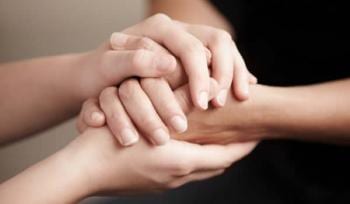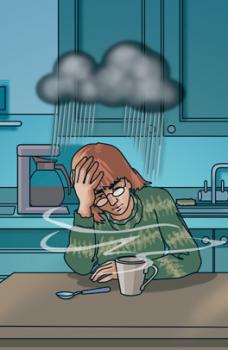A traumatic event is sudden and unexpected. There’s no right way to react. But there are definite signs that you’re not coping with tragedy.
Feeling pushed to the limit.
When tragedy strikes, a person’s ability to cope with stress, anxiety, and anger is pushed to the limit. Whether the tragedy is of a deep, personal impact, or is a shared collective trauma, it’s a struggle to mentally process what happened. The brain can only replay the incident so many times before fatigue sets in. Things gets even more complicated because strong emotions cloud reason. Trying to keep a calm or reasonable attitude can feel impossible.
Because a traumatic event is usually so big compared to everything else in the person’s life, a person may not see past the trauma. It’s as if the future is gone.
One needs time to process everything. There are questions the brain and soul can’t let go. What’s going to happen now? Who was responsible? Why did it happen? Could it have been stopped? If you’re feeling like you don’t have time, that you need answers now, you’re not coping with tragedy.
Fear that something bad will happen again.
One sign you’re not coping well is being afraid that the traumatic event will happen again. Or, having a vague feeling that something bad is going to happen. The thought of sitting inside a car sends your mind spinning with thoughts of a horrific crash. You’re afraid of the place where the tragedy happened. You’re afraid to leave the safety of your home. You start developing phobias about objects and places, thinking they bring bad luck.
Fear isolates a person. It brings panic attacks, anxiety, and depression. Fear creates insomnia, headaches, and poor appetite. Even worse, it closes a person off from the rest of the world.
Shift in spirituality.
Change can be good. But when tragedy strikes, there’s usually a big shift in spirituality. You want answers for why it happened. You argue with God, or whatever higher being you believes in. All this is normal and okay.
But, when a person feels numb about God and throws away a belief system, it can be a sign of not coping well. Yes, it’s okay and healthy to be angry with the Universe. It’s good to seek answers. But if that quest leaves you feeling alone, abandoned, and forgotten, then it’s not a healthy journey. You’ve fallen into despair and let dark emotions embrace your soul.
Survivor guilt.
You survived the tragedy. Maybe you didn’t get in the car and that saved your life. Maybe you asked someone else to get the milk from the store. That feeling of having survived while someone else died, doesn’t go away on its own. You need to talk to others about the guilt.
You might feel happy you survived. That’s normal, but you’ve turned it into a bad thing. Be compassionate with yourself. It’s okay to be a survivor. Accept that you are alive with a future ahead of you. Try to focus on the good things in your life. Don’t be afraid to ask for help to cope with survivor’s guilt.
Coping with tragedy takes time, compassion, and support from others. You need to go through the stages of grief. Embrace that journey and take time to grieve. Be gentle with yourself. Find ways to make yourself feel better. There are lots of self help tips and ideas that you can try. Meditate. Do a smudging ceremony. Take a walk outdoors. Talk to someone about how you’re feeling.
If you’re struggling call 1-800-273-8255 for the National Suicide Prevention Lifeline.
Find me on twitter @tereziafarkas


